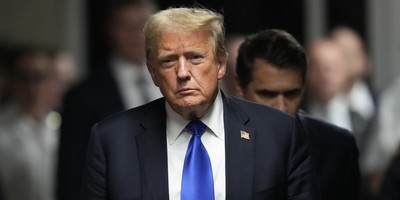Successfully facilitating comprehensive peace agreements between Israel and Palestine is one foreign policy concern that has been on the mind of every president since Harry Truman took office.
With the U.S. slated to give $400 million this year to the Palestinian Authority (PA) – the administrative organization in charge of governing areas of the Gaza Strip and West Bank – lawmakers are growing increasingly worried that U.S. aid is being misspent.
For the moment, however, the money appears to be making a difference.
Yesterday on Capitol Hill, the Subcommittee on the Middle East and South Asia heard testimony from three expert witnesses who unanimously agreed that the Palestinian Authority is paramount to improving Israeli-Palestinian relations.
While there are legitimate concerns with Palestine's unwillingness to recognize the sovereignty and existence of an Israeli Jewish State, U.S. pecuniary support has purportedly been instrumental in decreasing violence and fostering peace.
"We have demonstrated a record of success," said Lieutenant General Mike Moeller, the United States Security Counselor for Israel and the Palestinian Authority.
The implementation of the West Bank training initiative, he argued, has produced 3,500 law enforcement graduates who have effectively helped reduce violence and criminal activity.
The establishment and training of a professional security force has also led to a drastic reduction in the number of terror related incidents. In only five years, between 2005 and 2010, annual terrorist attacks have decreased from 841 to 36. Moreover, U.S. foreign aid has been palpably beneficial by providing health and education services for all residents as well as creating jobs, schools and roads.
American support for the Palestinian Authority appears crucial, especially since support from Arab nations has steadily decreased. Arab donors gave $462 million in 2009 but only provided $287 million in 2010 and $78.5 million in 2011, respectively. This has forced Prime Minister Salam Fayyed to pay his security forces half salaries, leading to indignation and uncertainty amongst government employees. If U.S. lawmakers withhold funds in the years ahead, the consequences could be irreversible.
Lawmakers are also leery of U.S. funds landing in the hands of militant organizations. Lt. General Moeller later alleviated fears that the U.S. was funding Hamas.
"There is no Hamas participation in the Palestinian government or security forces," Moeller said. "But we must be cautious…if there's any change we will reevaluate our support."
As of late, relations between the U.S. and Palestine appear robust. Deputy Assistant Secretary of State Jacob Wallace reports that Prime Minister Fayyad is committed to a two state solution. This reflects a shift in policy and may be a sign of hope for future negotiations.
Chairman Steve Chabbot (R- OH), however, expressed concern that the Palestine Authority launched a campaign to win full membership into the United Nations. Mr. Walles testified that the State Department would unequivocally not support a U.N. resolution recognizing Palestinian statehood.
"Permanent status must be decided between [these] two nations, not the United Nations or any other body," Walles said. "We will not support a unilateral effort."
But some members on the committee are weary of the lack of progress. The United States has appropriated billions of dollars and peace talks have been stagnant.
"All the parties included should agree to preconditions that allow a basis for understanding and that doesn't seem to exist here,” Rep. Brian Higgins (D-NY) said.
Reexamining America's Foreign Aid to the Palestinian Authority
The opinions expressed by columnists are their own and do not necessarily represent the views of Townhall.com.
Advertisement
Advertisement
Advertisement

Advertisement
























Join the conversation as a VIP Member